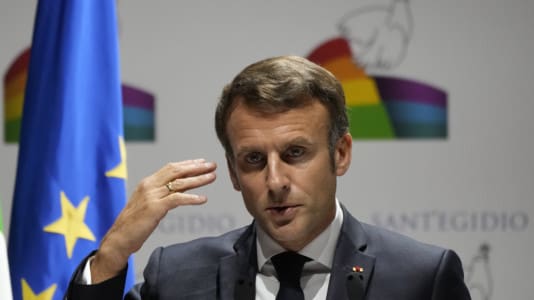Hungarian Prime Minister Viktor Orbán recently sat down for an interview with Budapester Zeitung, a German-language Hungarian newspaper. In the wide-ranging talk, Orbán discussed among other topics his recent work visit to Berlin, the state of ongoing German-Hungarian relations, and the future of Western Europe’s identity.
German-Hungarian relations
The Hungarian prime minister said German-Hungarian relations are strong in almost all areas, but insisted that politically there was work to be done, as the ideologies of the two countries’ current administrations are “worlds apart.”
Germans living in Hungary are doing well. From kindergarten to university, you can learn German with us. In Hungary, there is no resentment towards the Germans. A country in which there are more positive than negative feelings towards Germans is rare in Central Europe. The Germans are still held in high esteem in Hungary. Last but not least, the Hungarian Germans living in Hungary have contributed a lot to this. You are valued citizens of Hungary.
Hungarian Prime Minister Viktor OrbánWhile saying that socially and economically diplomacy between Germany and Hungary is well, Orbán admitted there is “a lot to do” on the political front. His conservative administration finds working with Germany’s traffic light coalition of greens and liberals challenging to say the least.
“Before my trip, I studied the government program of the federal government,” Orbán revealed. “There are worlds between this and ours! The two governments need to find points where we can work together, aside from the obvious differences. It’s a big job,” he added.
Orbán went further, calling the governing Social Democratic Party under current German Chancellor Olaf Scholz “the most hostile party (toward Hungary) in Europe today” and admitting it would take “great efforts” to cultivate German-Hungarian relations on a political level.
Similarly, he revealed he harbored no hope that the CDU opposition, with which Orbán’s Fidesz party previously had a working relationship, would once again become a reasonable conservative force. The CDU “goes its own way, which is not ours. From a Hungarian perspective, the CDU is now a left-wing party,” Orbán said.
[pp id=51732]
And while the current conservative Hungarian government may find a sympathetic ear toward its policies in the camp of the right-wing populist Alternative für Deutschland (AfD) party, Orbán insists that Hungary is “forced to sacrifice relations with the AfD on the altar of the best possible intergovernmental relations.” He claimed any solidarity with the AfD would “affect international relations,” and Hungary has a strong interest in “maintaining good relations with the incumbent federal government.”
Germany is moving “more and more to the left”
The Hungarian prime minister elaborated on this point when asked how his recent work visit to Berlin was received. He said he travels to Germany every two years for a work visit and therefore sees the progressive change in the country, which he now confirms has become a “multicultural society… This is no longer a question of a political program, but a fact.”
Orbán said the “German world is moving more and more to the left” and expressed his surprise “by the many armed security forces in front of synagogues.” He called the German society he witnessed on his trip a “very different” world than the one Hungarians live in “and in which we want to continue to live.” He also said “great efforts” are required by Germany’s political leaders to bridge the differences between the two countries to “ensure that the traditionally good German-Hungarian cooperation continues.”
When asked what he and German Chancellor Olaf Scholz discussed, Orbán explained that a major disagreement between the two nations currently is that the Germans want the European Union principle of unanimity in voting on foreign policy issues to be overturned in favor of a qualified majority system.
[pp id=51590]
“We don’t agree with that because no matter what we do, we can’t get a blocking minority together,” Orbán explained. “If this proposal goes through, the new practice would mean that the Germans and French could push through all their foreign policy ideas even against the resistance of smaller countries,” he added.
The Hungarian prime minister said such a move would “ultimately result in the surrender of a substantial part of (Hungarian) sovereignty,” and claimed it was unfortunate that Germany, a country that already carries “a lot of weight in EU decision-making” should want to “increase this weight even further.”
When questioned why he chooses not to counter some claims among German media and politicians that Hungary is in social and political decline under his leadership, Orbán replies by insisting he respects Germany and “that’s why I refrain from criticism here.”
He does, however, have a few choice words on the point, telling the newspaper:
“Compared to Germany, Hungary is now an island of peace and freedom. A liberal hegemony now prevails in Germany. Only one narrative has space in public. Anyone who deviates from this no longer exists for this public. In Hungary, on the other hand, we have a pluralistic structure in public dialogue. There are liberals and conservatives. Through the media, they are almost equally represented in public discourse. Hungarian society is significantly more pluralistic, freer, and more peaceful than German society.”
But Orbán doesn’t believe in interfering in the internal affairs of other EU member states, and expressed hope that someday other politicians would respond in kind.
“We firmly believe that German problems should be solved by Germans. We would be happy if the Germans would also come to the conclusion that the Hungarians living here are primarily responsible for solving Hungarian problems,” he told the newspaper.
He lamented the fact that German interference in Hungary’s internal affairs had now reached “enormous proportions,” something that was being met with a “strong negative response” in his homeland.
“We Hungarians are a freedom-loving people. We don’t like it at all when someone outside tells us how we have to live. The fight against external interference in our internal affairs runs like a red thread through Hungarian history,” Orbán said.
More Europeans will move to safe Hungary in the next 20 years, predicts Orbán
The Hungarian prime minister agreed with the interviewer that more and more Germans are seeing their future in Hungary, and Orbán encourages “Germans and other Western Europeans to come to us.”
“In the next 10 to 20 years, more and more western Europeans will come to us who would rather live with us because Hungary is a safe, Christian, and tradition-conscious country.”
He insisted that emigration to Hungary from Western Europe is “extremely good and welcome,” and believes that Europeans “who want to live freely and in a different environment than at home should move on to us.” Orbán said they will be welcomed with “open arms.”
“Hungary is a country where many more people could live than currently live here. We are happy when foreigners who like our way of thinking come to us,” the Hungarian leader said. He added that while Hungarian isn’t that easy to learn, it is a “fantastic language” that newcomers will be happy to use when they have learned it.
In short, Hungary remains open to citizens “who treat us and our traditions with respect,” Orbán said, concluding with the phrase: “Western refugees welcome!”





